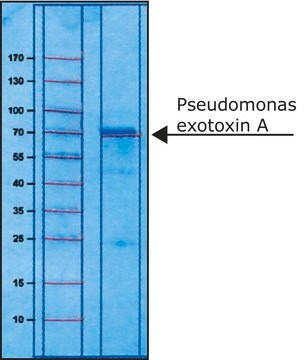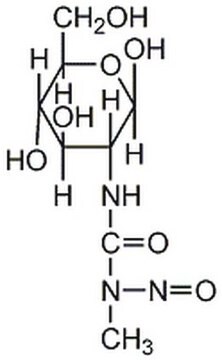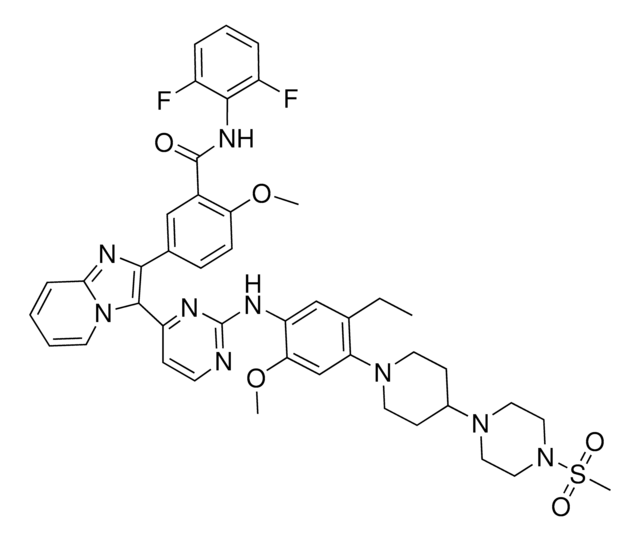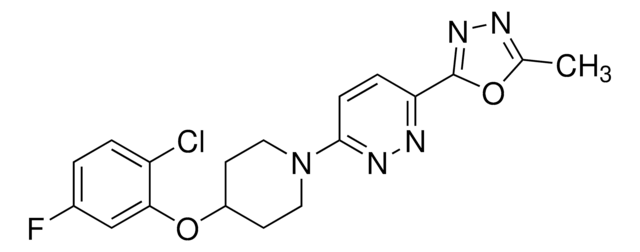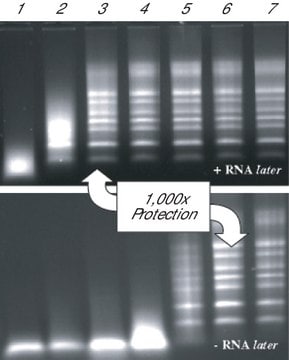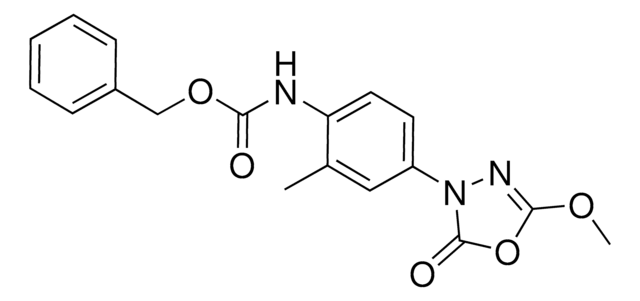PZ0176
SC-26196
≥98% (HPLC)
Sinónimos:
SC-26196, a,a-diphenyl-4-[(3-pyridinylmethylene)amino]-1-piperazinepentanenitrile; 2,2-diphenyl-5-(4-[[(1 E)-pyridin-3-yl-methylidene]amino]piperazin-1-yl)pentanenitrile
Seleccione un Tamaño
Seleccione un Tamaño
About This Item
Productos recomendados
Quality Level
assay
≥98% (HPLC)
form
powder
color
white to tan
solubility
DMSO: ≥10 mg/mL
storage temp.
2-8°C
SMILES string
N#CC(CCCN1CCN(CC1)\N=C\c2cccnc2)(c3ccccc3)c4ccccc4
InChI
1S/C27H29N5/c28-23-27(25-10-3-1-4-11-25,26-12-5-2-6-13-26)14-8-16-31-17-19-32(20-18-31)30-22-24-9-7-15-29-21-24/h1-7,9-13,15,21-22H,8,14,16-20H2/b30-22+
InChI key
QFYKXKMYVYOUNJ-JBASAIQMSA-N
Application
- in mouse inner medullary collecting duct (IMCD3) and human (female) embryonic kidney (HEK) 293 cell culture as Dulbecco′s modified eagle′s medium (DMEM) component
- in hepatic HepG2 cells
- in glioblastoma cell lines to test its effect post-radiation treatments
Biochem/physiol Actions
Storage Class
11 - Combustible Solids
wgk_germany
WGK 3
flash_point_f
Not applicable
flash_point_c
Not applicable
Elija entre una de las versiones más recientes:
Certificados de análisis (COA)
¿No ve la versión correcta?
Si necesita una versión concreta, puede buscar un certificado específico por el número de lote.
¿Ya tiene este producto?
Encuentre la documentación para los productos que ha comprado recientemente en la Biblioteca de documentos.
Contenido relacionado
Discover Bioactive Small Molecules for Lipid Signaling Research
Nuestro equipo de científicos tiene experiencia en todas las áreas de investigación: Ciencias de la vida, Ciencia de los materiales, Síntesis química, Cromatografía, Analítica y muchas otras.
Póngase en contacto con el Servicio técnico

